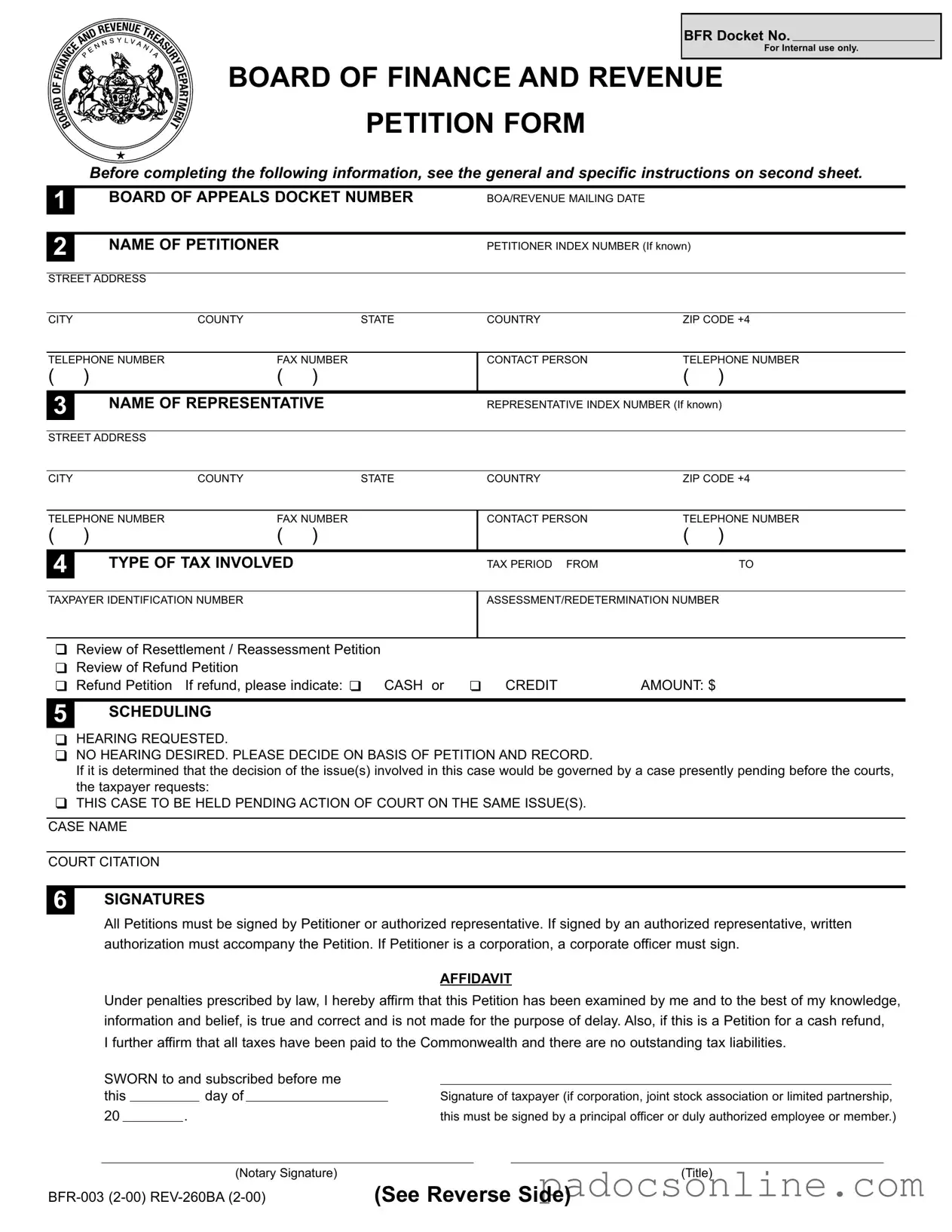Filling out the Pennsylvania BFR 003 form can be a straightforward process, but many individuals make common mistakes that can delay their petitions. One frequent error is failing to include the correct Board of Appeals Docket Number and mailing date. This information is crucial for the Board to track the petition's history and context. Omitting these details can lead to unnecessary complications and may even result in the dismissal of the petition.
Another common mistake involves incomplete personal information. In Block 2, petitioners must provide their full name, address, and contact details. Missing or incorrect information can hinder communication between the Board and the petitioner. It’s essential to double-check that all fields are filled out accurately, including the taxpayer identification number and assessment number, if applicable.
Many people also forget to indicate the type of tax involved and the specific tax period in Block 4. This oversight can cause confusion regarding the nature of the petition. Each type of tax has different implications, and clearly stating this information helps the Board understand the context of the request. Additionally, if a refund is being requested, it's vital to specify whether it is for cash or credit.
Another frequent pitfall is neglecting to sign the petition. All petitions must be signed by either the petitioner or an authorized representative. If a representative is signing, written authorization must accompany the form. Failing to provide a signature can result in the petition being deemed incomplete and, therefore, rejected.
Many petitioners also overlook the importance of including supporting documentation. Whether appealing a decision or requesting a refund, it is crucial to attach relevant documents that bolster the case. This may include copies of notices, invoices, or any other evidence that substantiates the claims made in the petition. Submitting this information along with the initial filing can streamline the process and improve the chances of a favorable outcome.
Lastly, some individuals mistakenly believe they can submit their petitions without adhering to the required timelines. Petitions must be filed within specific time limits, depending on the type of tax involved. Delays in filing can lead to lost opportunities for appeal or refund. It’s essential to be aware of these deadlines and plan accordingly to ensure that all materials are submitted on time.

